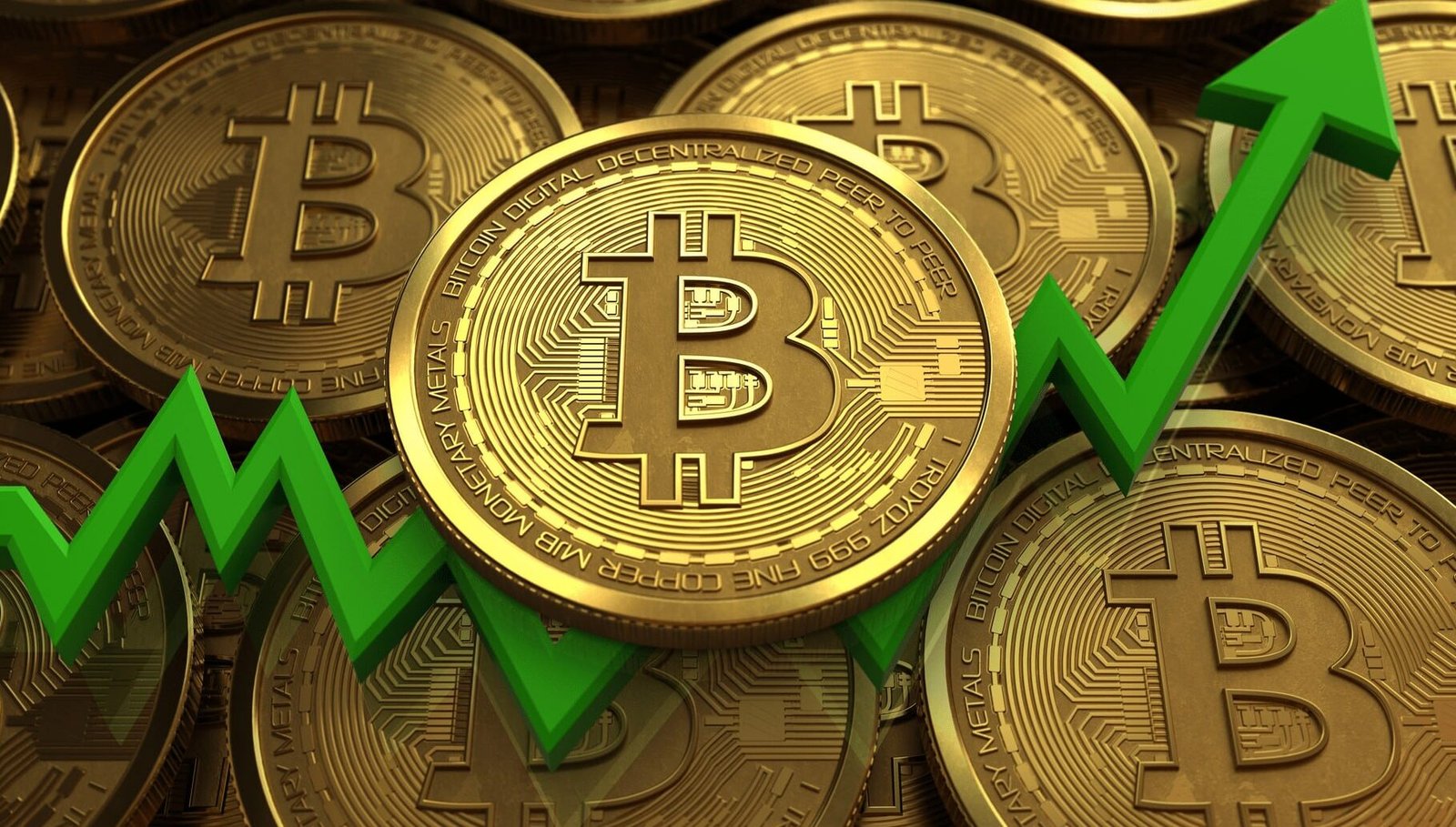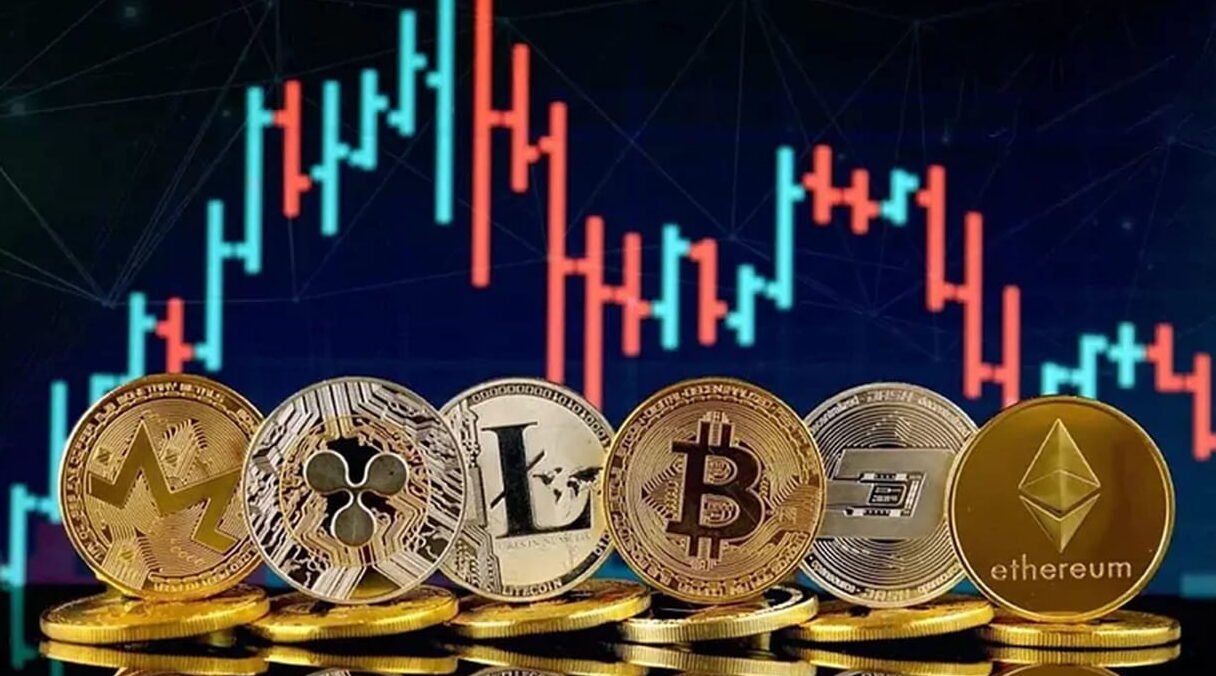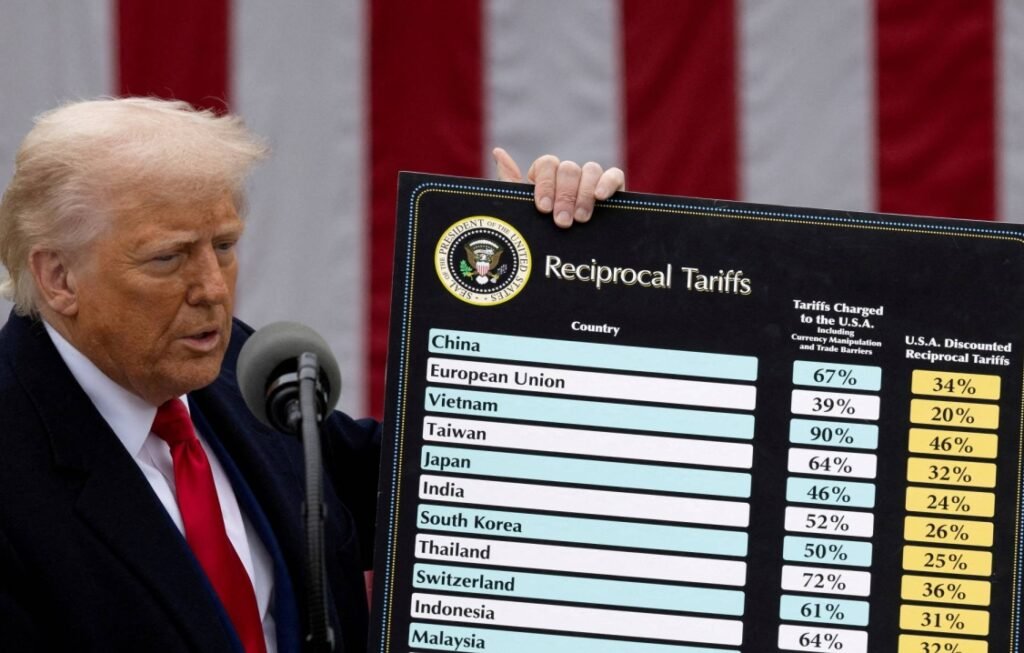With former President Donald Trump’s announcement of a 90-day tariff holiday on international trade, Bitcoin surged after the suspension, surging by more than 6%—a stunning change in market dynamics that greatly benefited cryptocurrencies.
Apart from providing a strong push above the $82,000 threshold, this tariff suspension has caused a jump in the values of other cryptocurrency markets, Ethereum (ETH) and XRP. Reflecting their increasing relevance in the larger economic scene, digital assets seem to be profiting from the policy change as global markets react to trade worries.
Crypto Surge After Tariff Suspension
The world’s biggest and most well-known cryptocurrency, Bitcoin, rose significantly after Trump’s declaration and peaked at $82,290 late afternoon on April 9, 2025. This spike indicates investor hope and shows a return from the swings of the last few weeks. The news that the United States would halt tariffs for ninety days helped allay trade war fears, fostering a more stable climate for assets like Bitcoin to flourish. The cryptocurrency surge coincides with more general debates about its changing role as a hedge against inflation and world economic uncertainty.
 Comparably, Ethereum, the second-most valuable cryptocurrency by market capitalization, trailed behind Bitcoin. Inspired by the same hope, Ethereum’s price shot to $1,650. Ethereum, one of the most popular blockchain systems, sometimes closely correlates its success with broader developments in the crypto market. With innovations like Ethereum 2.0 and growing acceptance in distributed finance applications (DeFi), which have helped explain its durability and value, the blockchain network is likewise set for ongoing expansion.
Comparably, Ethereum, the second-most valuable cryptocurrency by market capitalization, trailed behind Bitcoin. Inspired by the same hope, Ethereum’s price shot to $1,650. Ethereum, one of the most popular blockchain systems, sometimes closely correlates its success with broader developments in the crypto market. With innovations like Ethereum 2.0 and growing acceptance in distributed finance applications (DeFi), which have helped explain its durability and value, the blockchain network is likewise set for ongoing expansion.
Closely linked with Ripple Labs, XRP also benefited from the tariff suspension, rising by almost 9% and exceeding the $2 mark. XRP’s ascent is noteworthy since its connection to Ripple’s continuous legal fight with the U.S. Securities and Exchange Commission (SEC) causes it to lag behind other cryptocurrencies regularly. However, the latest surge points to a more general market favorable for digital assets, from which XRP is profiting.
Cryptocurrency Market Impact
The explosion in cryptocurrencies went beyond the digital coins themselves. Additionally, we saw notable increases in the stocks of companies actively engaged in the cryptocurrency sector. With significant Bitcoin holdings, MicroStrategy, a business analytics company, observed about a 25% increase in stock price. This leap captures investor faith in the long-term viability of Bitcoin as a store of wealth and an asset category.
Coinbase Global also recorded a share increase of almost 17% among the biggest bitcoin exchanges. The increase in Coinbase’s stock price highlights the tangible economic benefits of the bitcoin market’s expansion, which benefits exchanges and businesses operating within this ecosystem. The impact of companies such as MicroStrategy and Coinbase on the industry continues to develop as institutional investment in cryptocurrencies rises.
Bitcoin and Macroeconomics
The explosive rise in Bitcoin values emphasizes the complex link between digital assets and macroeconomic events. Trump’s temporary suspension of tariffs helped allay market concerns about the additional trade war escalation between the United States and China, which has worldwide effects on conventional markets and digital assets. Markets suffering from supply chain interruptions, inflationary pressures, and possible economic slowdowns found relief with the 90-day tariff suspension.
This action also indicates the rising acceptance of cryptocurrencies as assets capable of functioning outside conventional financial systems. Investors are looking to distributed assets like Bitcoin, Ethereum, and XRP more and more as central banks and governments struggle with inflation and currency devaluation. They help offset these hazards. Some view cryptocurrencies as a safer place of value in times of economic instability than fiat currencies, which can be subject to government manipulation and inflationary pressures.
Bitcoin as Defense
People are paying more attention to Bitcoin as a potential defense against political unrest and inflation. Notwithstanding its volatility, Bitcoin has drawn institutional investors like pension funds, hedge funds, and publicly traded firms. These people view Bitcoin as a way to diversify their portfolios and shield against the dangers connected with conventional fiat money.
The recent performance of Bitcoin is further proof of its growing reputation as digital gold, a possession able to retain value in times of economic crisis. Although still a very new asset class, Bitcoin is becoming increasingly popular as a digital store of wealth. Its price swings are now mostly shaped by world events and economic policies, including trade talks and tariff decisions.
Cryptocurrency Market Outlook
Although the short-term view for Bitcoin and other cryptocurrencies seems favorable, experts warn that the market is naturally volatile. Although they are still developing, cryptocurrencies’ long-term path will rely on their general acceptance, technological developments, and legislative environments. For example, the continuous legal disputes over XRP highlight the bitcoin market’s regulatory difficulties.
 Still, the worldwide drive for blockchain adoption, the increasing popularity of non-fungible tokens (NFTs), and the ongoing expansion of distributed finance (DeFi) platforms point to an environment that will be progressively beneficial for cryptocurrencies in the years ahead. Digital assets may become more important in the global financial system as they change, generating new investment prospects and problems for institutional and retail investors.
Still, the worldwide drive for blockchain adoption, the increasing popularity of non-fungible tokens (NFTs), and the ongoing expansion of distributed finance (DeFi) platforms point to an environment that will be progressively beneficial for cryptocurrencies in the years ahead. Digital assets may become more important in the global financial system as they change, generating new investment prospects and problems for institutional and retail investors.
Final thoughts
Driven by Trump’s 90-day tariff truce, Bitcoin’s climb above $82,000 shows how increasingly important global trade policies are to digital assets. The positive market attitude also helped Ethereum and XRP since investors rushed to cryptocurrencies in the face of geopolitical concerns.
Although the bitcoin market is still erratic, digital assets are gradually taking center stage in the wider financial scene. As substitutes for conventional assets, investors are increasingly turning to Bitcoin and other cryptocurrencies, supporting their function as a buffer against political unrest and inflation. As the industry develops, cryptocurrencies will probably keep influencing the direction of finance.

